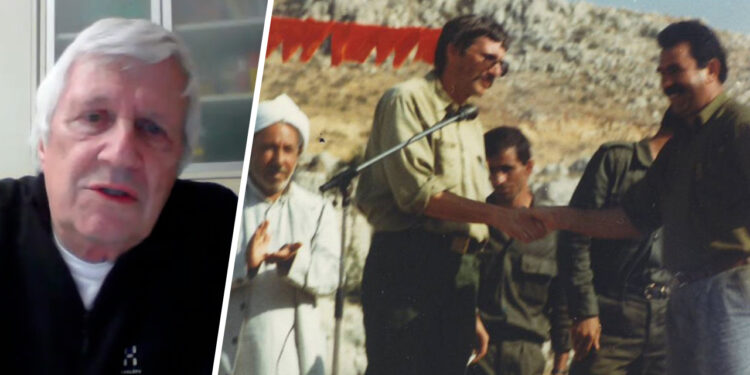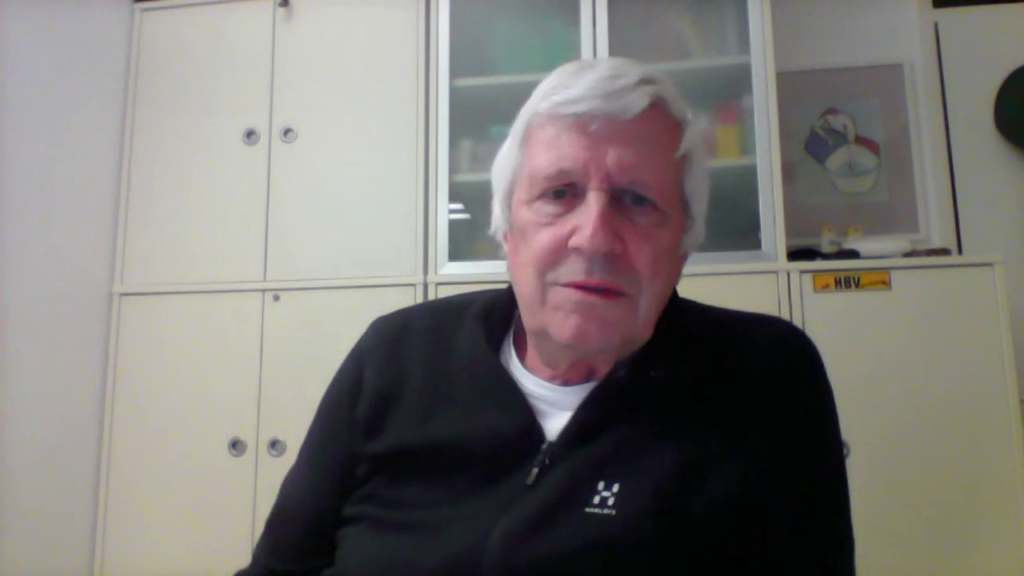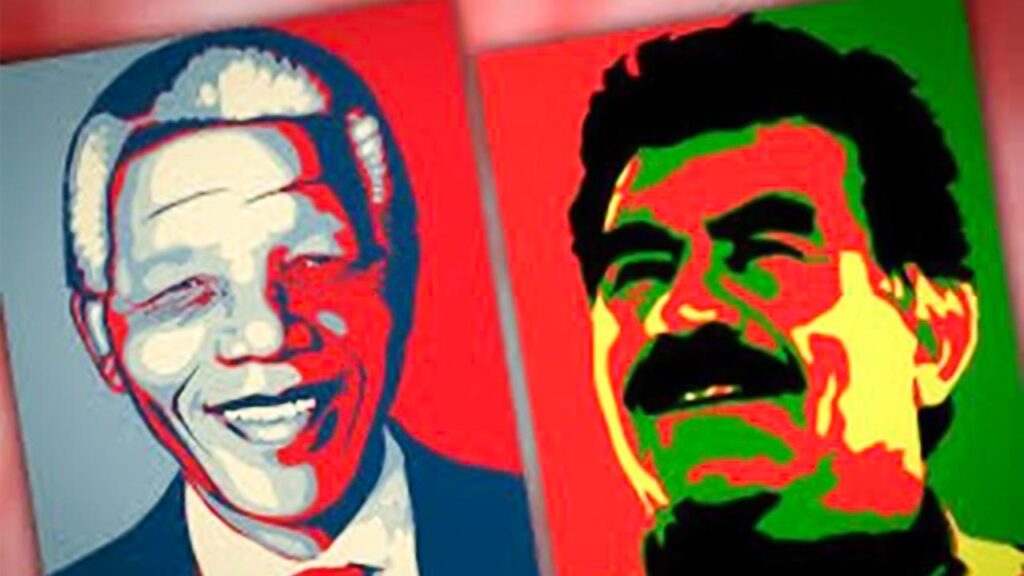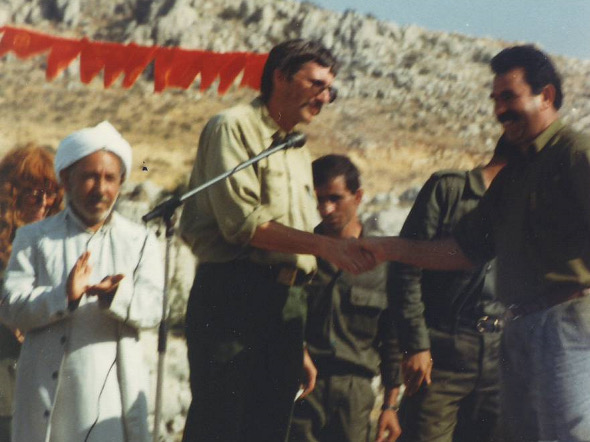Rudolf Bürgel, a member of the Left Party’s (Die Linke) State Committee in Baden-Württemberg, discussed his experience with Middle East delegations, including a meeting with Abdullah Öcalan in the early 1990s. Bürgel emphasised the importance of Öcalan’s freedom, and provided insights into the future direction of the Left Party following recent internal changes.

Rudolf Bürgel of Germany’s Left Party (Die Linke) shared insights from his delegation visits to the Middle East and his meeting with Abdullah Öcalan, the imprisoned leader of the Kurdistan Workers’ Party (PKK), in the early 1990s. In an exclusive interview with MedyaNews, he reflected on the reasons for these Middle East delegations, including documenting the use of German weapons and village destruction in Kurdistan, and providing solidarity with Kurdish parties. “We documented the use of German weapons and the destruction of Kurdish villages in Turkey in the 80s and 90s,” he explained.
The ‘Middle East delegations’ refer to the trips or missions that Rudolf Bürgel and others undertook to the Middle East, particularly to Kurdish regions. These delegations were primarily focused on observing and documenting the situation on the ground, including the impact of conflicts, the role of foreign weapons (including German), and the political dynamics in the area. The delegations also aimed to show solidarity with Kurdish parties and movements. Bürgel discusses these trips in detail, explaining their purpose and his experiences, including his encounter with Kurdistan Workers’ Party’s (PKK) imprisoned leader Abdullah Öcalan.

Drawing parallels between Abdullah Öcalan and Nelson Mandela, Bürgel noted similarities in their imprisonments and the symbolic importance of their struggles. “Similar to Mandela, Öcalan is seen as a symbolic figure for the fight for justice and self-determination,” he noted. He emphasised Öcalan’s key role in restoring dignity to the Kurds and his vision for a peaceful coexistence in the Middle East through democratic confederalism and a council-based society. “Öcalan’s release would be a significant step towards resolving the Kurdish issue in Turkey,” he argued.
Discussing the Left Party’s future following Sarah Wagenknecht’s departure and the dissolution of its parliamentary group, Bürgel highlighted the party’s commitment to social justice, peace, and environmental protection. “The Left stands for the redistribution of wealth, peace, and environmental protection,” he commented. He also highlighted the importance of cross-party alliances, saying, “We must forge cross-party alliances to support freedom movements,” and challenged the PKK ban in Germany as an obstacle to peace in the Middle East.

Highlights from the interview
Delegations to the Middle East
Kurdistan Solidarity in Germany
Forming Kurdish Movement in Germany

1991 Delegation to Mazlum Korkmaz Academy
“Öcalan was certainly a warm host, dedicating a lot of time and effort in discussions to help us understand the philosophy of the Kurdish freedom movement. He introduced us to the basic principles of democratic confederalism and a council society in the Middle East, later detailed in his defence writings.
“Öcalan attempted to distinguish his ideas from the socialism practiced in Cuba, Nicaragua, or Vietnam, proposing an alternative model for Kurdistan, now evident in Rojava. This provides context for the period of our visit to the Mesopotamian academy and the emergence of the Kurdistan Solidarity Movement in Germany.
“Discussing Öcalan’s current situation, parallels can be drawn with Nelson Mandela’s struggle, who spent over 20 years in prison.
“Significant international pressure mounted on the South African apartheid regime, with campaigns like the churches in Germany urging a boycott of South African goods. This played a role in dismantling apartheid. Öcalan, already an honourary citizen in many Italian cities and recognised by labour unions in the UK, has received support from Nobel laureates and has been the subject of important rulings by European courts.
“In Germany, the Left Party (Die Linke) is the only major political group advocating for the recognition of PKK’s legitimacy and the reversal of its prohibition. Recent resolutions passed at our party congress in Augsburg reflect this stance, alongside calls for halting arms exports to Turkey and expressing solidarity with Kurdish freedom movements.
“While the Left Party stands almost alone in this cause, individual politicians from other parties occasionally express support. Öcalan’s release would represent a significant step towards resolving the Kurdish issue in Turkey and achieving peace.
“Öcalan’s importance lies in restoring dignity to the Kurds, particularly during and after the military coup in Turkey, where thousands were disappeared or killed. He is seen as a visionary leader for the Kurdish movement.
“The Rojava project, inspired by Öcalan, is a beacon in the Middle East, exemplifying the peaceful coexistence of diverse peoples and religions, with equal participation of women in societal decisions.
“The model proposed by Öcalan could be a template for the Middle East, offering an alternative to the region’s history of imposed borders, misused religion and imperialist manipulation.
“Looking forward, it’s crucial to build broad, cross-party alliances, especially in support of Kurdish freedom movements. Overcoming the PKK ban in Germany is essential for a fair policy towards the Kurds and peace in the Middle East.”








Leave A Comment